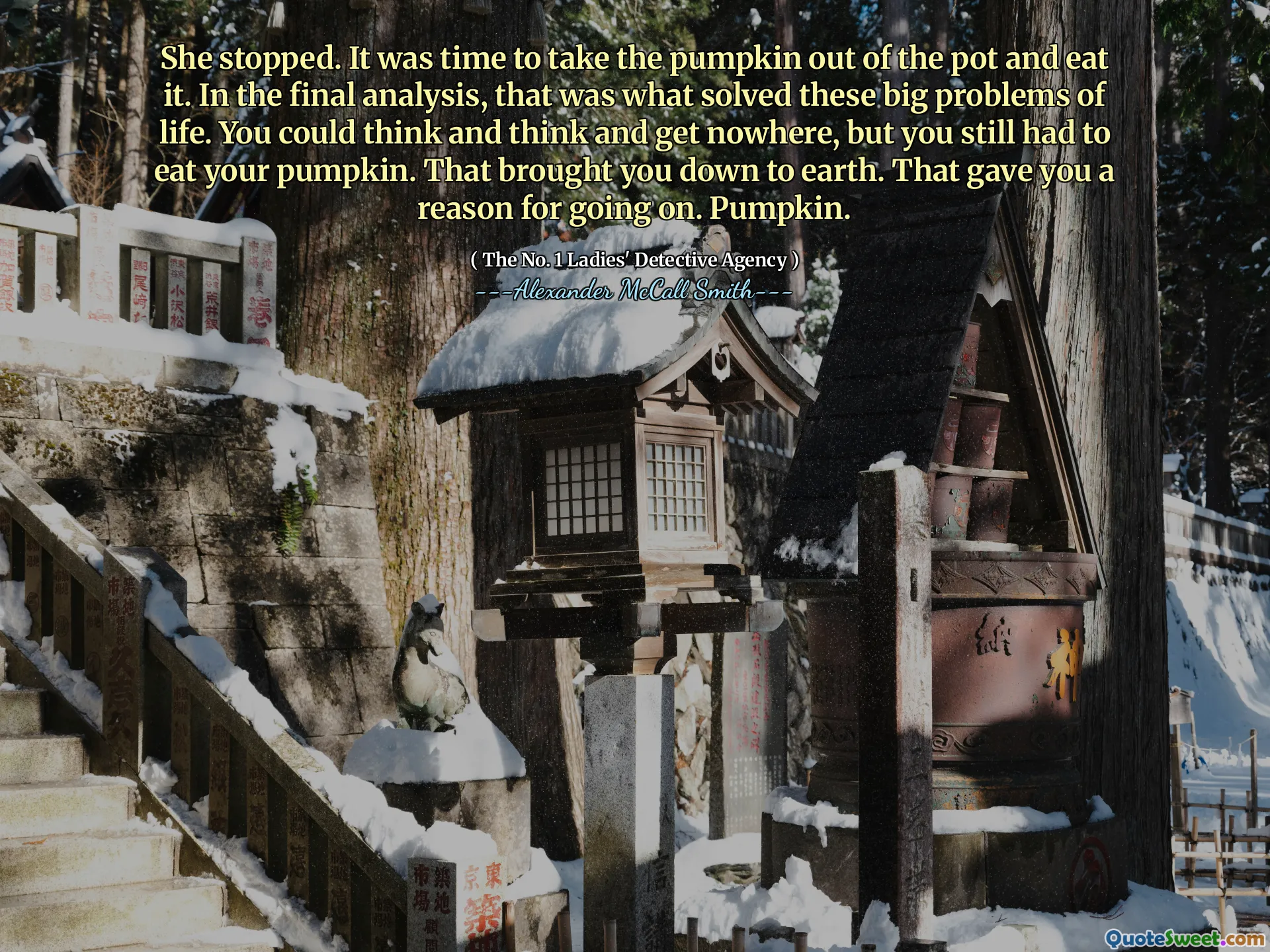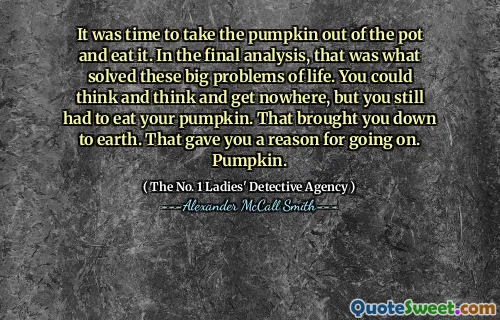
She stopped. It was time to take the pumpkin out of the pot and eat it. In the final analysis, that was what solved these big problems of life. You could think and think and get nowhere, but you still had to eat your pumpkin. That brought you down to earth. That gave you a reason for going on. Pumpkin.
In the passage, the narrator reflects on a moment of realization where the mundane act of eating a pumpkin serves as a grounding experience. It highlights that despite life's complexities and mental struggles, simple actions and basic needs can provide clarity and motivation. The metaphor of the pumpkin illustrates how tangible tasks can lead us to solutions, reminding us to focus on practical steps rather than getting lost in overthinking.
The act of taking the pumpkin out of the pot becomes symbolic of addressing life's challenges directly. No matter how overwhelming problems may seem, returning to essential needs, like eating, can offer perspective and a sense of purpose. It emphasizes the importance of staying connected to the present and finding joy in simple life's moments, which in turn fuels our resolve to move forward.











